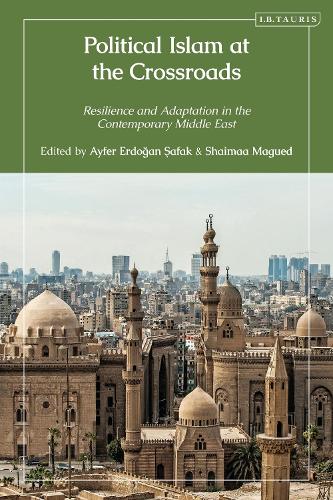
Political Islam at the Crossroads: Resilience and Adaptation in the Contemporary Middle East
(Hardback)
Publishing Details
Political Islam at the Crossroads: Resilience and Adaptation in the Contemporary Middle East
By (Author) Ayfer Erdogan
Edited by Shaimaa Magued
Bloomsbury Publishing PLC
I.B. Tauris
21st August 2025
United Kingdom
Classifications
Professional and Scholarly
Non Fiction
Islam
Physical Properties
Hardback
272
Width 156mm, Height 234mm
Description
An comparative analysis of Islamist groups ideological positioning toward nation-state, secularism, and democracy across different countries in the MENA region.
Authoritarian reassertion following the Arab uprisings in the Middle East has restrained Islamists political participation and challenged their survival as both opposition groups and rulers. In light of national sociopolitical variations across the region, this book explores Islamists means of adaptation and resilience in the face of this political exclusion, unpacking Islamists sociopolitical persistence and ideological sustainability.
In doing so this book sheds light on the following questions: How did Islamists adapt to contextual restrictions in terms of repression and stigmatization How did the Arab uprisings impact their internal debates, ideological revisions, and reconsideration of tools of action Individual chapters explore similarities and divergences among Islamist groups/ parties in terms of ideological affiliations, means of survival and political participation strategies, drawing on comparative cases from across the MENA region. Examples include the Muslim Brotherhood in Egypt, al-Nahda in Tunisia and the Islamic State in Syria and Iraq. These studies engage critically with conceptual debates related to Islamism, post-Islamism, Jihadist Islam, and the Islamic nation/community (ummah) to determine the trajectory of Political Islam in the MENA.
Reviews
A welcome book to shed light on the latest developments affecting political Islam, both as an ideology and as a collection of social and political movements. Highly recommended reading. -- Mohamed-Ali Adraoui, Georgetown University, School of Foreign Service, US
Author Bio
Ayfer Erdogan-Safak received her PhD in International Relations and Political Science from Yildiz Technical University, Istanbul, Turkey. Her research interests include democratic transition, Third Wave of Democratization, Islam and democracy, and the Arab Spring. She is the author of Arab Spring-Arab Fall: Divergent Transitions in post-2011 Tunisia and Egypt.
Shaimaa Magued is Assistant Professor at the Faculty of Economics and Political Science, Cairo University, Egypt. Her works focus on International Relations of the Middle East, Identity Politics, Foreign Policy Analysis, and Transnational Advocacy.
